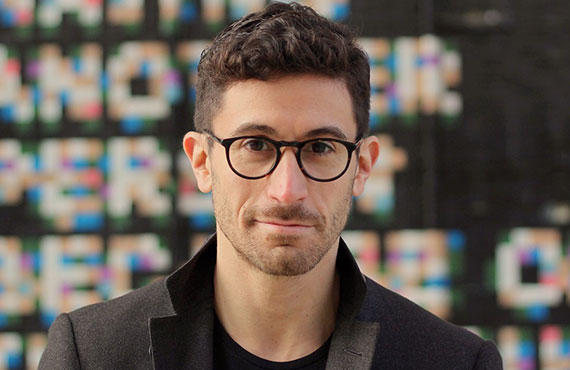New faculty member Ari Ezra Waldman explores ways law and technology mediate power
New faculty member Ari Ezra Waldman explores ways law and technology mediate power
Author: Kelly Chan
Date: 10.29.20

Photo provided by Waldman.
The work of Ari Ezra Waldman, one of Northeastern’s newest faculty additions as a professor of law and computer science, is interdisciplinary at heart. A highly regarded scholar and one of Prospect Magazine’s Top Fifty Thinkers of 2020, Waldman has dedicated his career to exploring the ways law and technology mediate power.
For his current book project, Inside the Information Industry, Waldman went behind the curtain to see what corporate privacy departments look like, how they do their work, and how they influence, or fail to influence, the designs of new technologies.
“What I found was you can pass all the laws you want,” he said, “but these companies are manipulating how the law is being applied to enhance their power as opposed to limiting or reining in their data-extracted behavior.”
Prior to his appointment at Northeastern, Waldman taught at New York Law School, Fordham University School of Law, Brooklyn Law School, and Princeton University. He found Northeastern’s emphasis on interdisciplinary education to best suit his areas of study.
“The administration and the faculty have dedicated themselves to making sure that schools are not siloed, that people are working across communities to enhance their research,” he said. “And as someone with a PhD [in sociology] and a law degree, that was really enticing.”
After he graduated from Harvard Law School, Waldman practiced law and clerked at the Court of Appeals for the Armed Forces. His academic interests were crystalized when he began his journey from law practice to academic in September 2010. That month, several queer adolescents, Tyler Clementi among them, and young women, died by suicide as the result of incessant online and face-to-face bullying.
“Technological utopianists peddle a false narrative,” Waldman said. “Everyone says technology is supposed to make everything better … but in fact, technology can enhance the ability of people in power to objectify and harass marginalized populations. Early on, I realized that online harassment and deviant social interaction online was something we needed to explore further. I am old enough not to have been a victim of cyber harassment but was gay enough to be a victim of bullying for my perceived sexuality when I was a kid.”
That same year, he started writing a law column for Towleroad, a LGBTQ-oriented news site, to educate queer people about the rapidly changing legal landscape around them. This past May, Waldman launched Legally Queer, a social media project aimed at showcasing the past, present, and future of impact litigation affecting the LGBTQ+ community.
“Legally Queer is an attempt to leverage social media, and the reach of social media, … to [show] how important judges, courts and the politicians that appoint them are to the protection of our rights in this country,” he said. “… The goal is to inform, engage and enrage in some ways to get people more aware that their votes at both the state and federal level really matter.”
Outside of his career, Waldman is an avid runner and biker. His love for exercising surfaced after being diagnosed at age 17 with Crohn’s disease.
“I started jogging — and it was awful, at first, of course — but I was able to completely change my lifestyle, body and health,” he said. “For the last 15 years, I’ve been in almost complete remission.”
Recently, Waldman was appointed to the Commission to Reimagine the Future of New York’s Courts in the wake of COVID-19 by Chief Judge Janet DiFiore. His role is to ensure that the people’s information remains secure as new proposals for changes in the court system arise. The Commission overall aims to create a more efficient and accessible court system post-pandemic, but above all, he values creating a new unified court system that enhances justice for all.
“One of the key things that I think is important is not just making the legal system more efficient — sure, that’s important,” he said. “But efficiency should not always be the primary motivation when your goal is justice.”